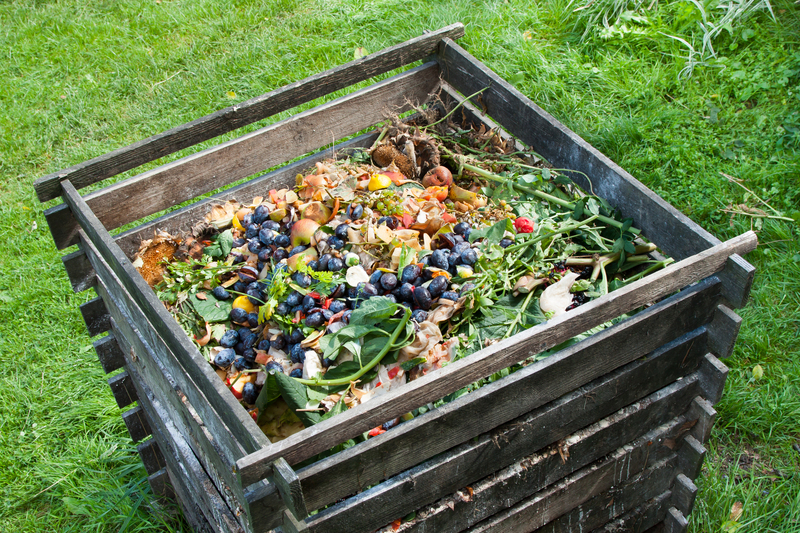Managing green waste effectively is a critical component of sustainable living. As communities grow, so does the volume of organic waste, making it essential to adopt strategies that not only reduce waste but also benefit the environment. In this article, we will explore the top 10 practical approaches to green waste reduction, offering actionable insights for individuals and organizations alike.
1. Composting: Turning Waste into Resource
Composting is one of the most efficient ways to reduce green waste. By transforming organic waste into nutrient-rich soil amendment, composting not only minimizes landfill contributions but also enhances garden health. You can start composting by using kitchen scraps, yard clippings, and other organic materials. By decomposing these materials in a controlled environment, you create valuable compost that can enrich the soil and promote plant growth.

2. Grasscycling: Leave the Clippings Behind
Grasscycling involves leaving grass clippings on your lawn rather than bagging them. This practice is an effective form of green waste reduction because it reduces the need for disposal. The grass clippings naturally decompose and act as a natural fertilizer, promoting healthier lawns with less effort and expense.
3. Mulching: Retain Moisture and Reduce Waste
Mulching is another strategy that offers dual benefits. By applying a layer of organic material, like wood chips or straw, to your garden, you can suppress weeds, retain soil moisture, and improve the appearance of your landscaping. Mulching reduces the need for regular watering and minimizes organic waste by repurposing yard material.
4. Implementing a Community Green Waste Collection Program
Setting up a community-based program for green waste collection can significantly reduce individual disposal burdens. A well-organized pick-up schedule ensures that organic waste is gathered and processed centrally, often for composting or mulching, reducing individual hauler trips and subsequent carbon emissions.
5. Utilizing Worm Composting (Vermicomposting)
Worm composting, or vermicomposting, is a method that leverages the natural decomposition abilities of worms to break down organic matter. This can be particularly useful for apartment dwellers or those with limited space. Vermicomposting bins are compact and can efficiently process food scraps into high-quality fertilizer.
6. Reusing and Recycling Green Waste
To reduce the amount of green waste sent to landfills, consider reusing and recycling yard waste. Tree branches and logs, for example, can be chipped and used as garden pathways or mulch. Leaves can be shredded and used in flower beds or as part of a compost pile.
7. Strategic Landscaping and Gardening
The key to effective green waste management lies in planning your landscaping and gardening activities to minimize waste. Opt for native plants that require less pruning and are more suited to your climate. By strategically choosing plants and arranging them in ways that reduce maintenance, you contribute to green waste reduction directly.
8. Implementing a "Pay-As-You-Throw" Program
A "Pay-As-You-Throw" (PAYT) program can be an effective motivator for green waste reduction. By charging residents based on the amount of waste they produce, people are encouraged to engage in waste-reducing practices, such as composting and recycling, to decrease costs.

9. Educating the Community on Green Practices
Education plays a vital role in effective green waste reduction. Hosting workshops and seminars on composting, recycling, and eco-friendly landscaping methods can empower community members to adopt sustainable practices. Providing informational resources can help shift behaviors and norms towards more sustainable waste management.
10. Supporting Policies and Legislation for Waste Reduction
Local governments and organizations can facilitate green waste reduction through supportive policies and legislation. Implementing regulations that encourage or mandate composting and green recycling is essential. Support for community composting facilities, incentives for reduced waste, and educational campaigns are vital components in promoting sustainable waste management.
By embracing these practical approaches to green waste reduction, individuals and communities can make significant strides toward a more sustainable future. Reducing waste not only saves resources but also supports healthier ecosystems. Through concerted efforts in composting, community programs, and education, we can promote a culture of conservation and environmental stewardship.
Conclusion: Green waste reduction is essential for sustainable living. These ten approaches not only help in managing organic waste effectively but also promote community engagement and education. Implementing these strategies can lead to environmental benefits, economic savings, and improved quality of life.